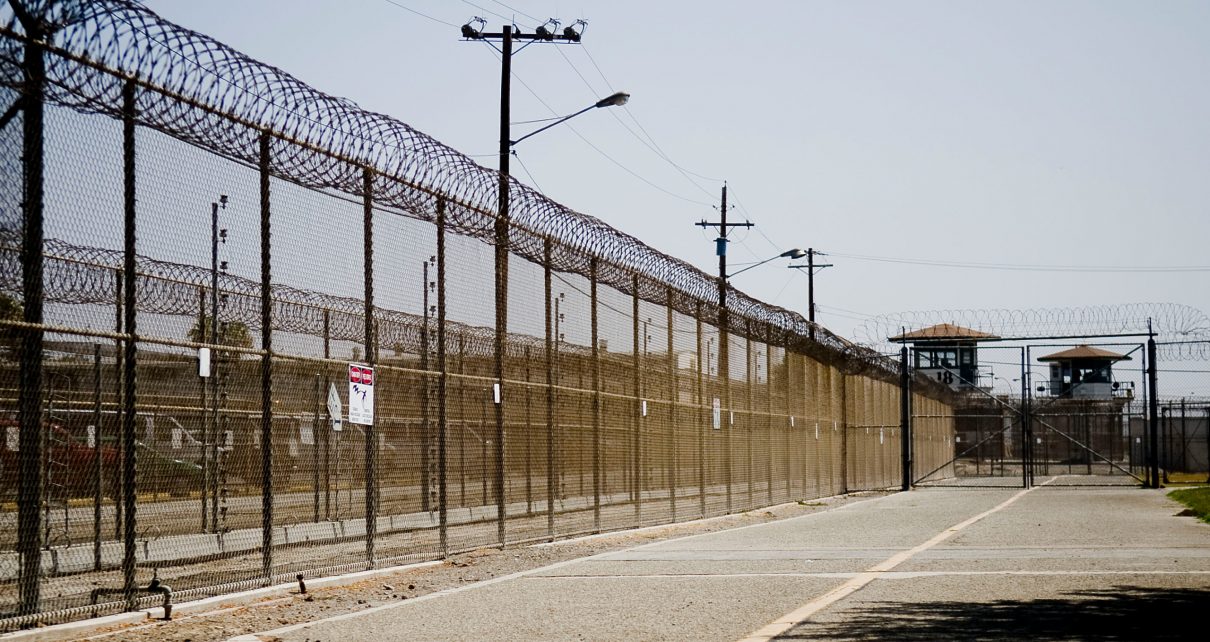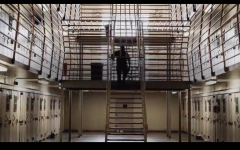
Outside the California Institution for Men in Chino. (Photo: cdcr.ca.gov/)
California Prisoners To Get Reduced Phone, Communication Rates This Month
New contract will save prisoners families $17 million a year, CDCR says that taxpayers will not pay costs
By Evan Symon, March 2, 2021 2:15 am
On Monday, the California Department of Corrections and Rehabilitation (CDCR) announced that the cost for prisoners to make telephone calls would be greatly reduced in 2021.
According to a CDCR press release, a new six-year contract with Global Tel Link Corporation (GTL), all calls nationwide from prison will now be 2.5 cents a minute. The new rate will reduce local and in-California calls by 5.1 cents a minute and 18.5 cents a minute outside of California. International calls were also greatly reduced, going down 68 cents a minute to a now flat rate of 7 cents a minute.
In addition, a fee to create an account with GTL has been removed, with every prisoner receiving 15 minutes of phone calls for free every two weeks. Altogether, these changes will save prisoners $17 million a year. Phone calls for minors in the Division of Juvenile Justice will remain free. However, the two free phone call days a month instituted by the CDCR during the pandemic are scheduled to end with the new contract.
Digital communication prices have also been reduced, with actions such as emails going down from 30 cents per message to 5 cents per message. Video calls will cost 20 cents a minute, with 15 minutes of free unbankable video calls being available to prisoners every two weeks. All digital devices, such as tablets and kiosks, will be closely tracked and monitored.
The changes were made after years of complaints from prisoners and prisoners families over the large cost of communication methods, as well as from taxpayers for having to partially pay for some phone costs. Under the new CDCR contract, phone costs will largely go down at no cost to taxpayers.
“The communication between our incarcerated population and their loved ones is paramount to their rehabilitation. This reduction in the cost of telephone calls is the result of the hard work of our Administration and staff, and the commitment to make this communication affordable and accessible,” said CDCR Secretary Kathleen Allison on Monday.
Families of prisoners, who had long since lobbied for the change, told the California Globe on Monday about what the changes mean for them.
“Well, this means that we don’t have to scrape by each week,” explained Lori Larson, whose husband is currently in prison for five years. “It’s one thing to not wanting prisoners to have any comforts, but if you put an added burden on the family, it’s hard. Especially with COVID. You’re essentially a single parent when your spouse is in prison, and the calls really rack up. Not for the person who is in prison, but for the family who ultimately has to pay the bill.
“This new phone deal, well it means my kids still have a father to talk to and it means he stays in touch with us so when he gets out he’ll be on better footing to get back to the world. Not to mention the world of good it has done with COVID being around.”
“Punish those who have done wrong, not their loved ones who didn’t.”
While some victim justice groups have questioned the new plan, no group or organization has yet to formally come out against it.
The new low-cost calls are scheduled to be implemented starting later this month. The expansion of digital communications will happen later this year.
- Bill to Require Law Enforcement Disclosure if AI Was Used To Help Write Reports - August 7, 2025
- Gov. Newsom Files FOIA Request To ‘Expose True Cost’ Of L.A. Federal Troop Deployment for Anti-ICE Riots - August 6, 2025
- California Redistricting: How Newsom’s Plan Will Demolish Hard Fought GOP Gains - August 6, 2025





I 1000% agree with this policy. Telecommunications for prisoners should be free and encouraged.
The fact is that Telcos and Local Agencies have been price gouging inmates forever. An amazing amount of research shows that prisoners who keep in touch with their families and extended families and communities (including faith-based institutions) have a tremendous reduced risk of recidivism. Furthermore, many pre-trial jail inmaates are forced to improvised their own self-defense in court with limited resources through the Telco racket. They are legally-innocent and should have full telecommunicative access to criminal justice legal libraries and to legal-service consultants. This is a true reform, and I heartily agree.
Prison services off all sorts, not just telecommunication, are owned by private equity groups that charge ruinous and abusive rates to a captive semi-slave population (and their outside families) that can least afford it. Regardless how you might otherwise feel about both felons and the persons sponsoring this legislation. it remains that a prison population in fact “in care” and should be protected from gross exploitation in the name of profit.
To explore further the extent of equity groups’ penetration into the prison system as a whole, feel free to search the term “Prison Telephones Private Equity” or “Prison Services Private Equity”. You may also wish to examine as well the abuses of misdemeanor defendants with ruinous additional fees’ search “Misdemeanor Fines Court Costs” to discover the extent of the abuse.
(A visit to Matt Stoller’s excellent blog for his coverage and commentary on the Private Equity Groups in general and their monopolistic practices within certain businesses – Cheerleading?? – is quite an eye opener. Ditto Retail Dive’s excellent Dive in Depth series on the deleterious effects of Private Equity in the retail sphere is worth a look a look as well.)
Just a thought.
VicB3
Here is an old adage for you:
Do the crime, save a dime!
Oh that is so 2021.
It used to be:
Do the crime, do the time.
Funny, now they save time and money, lucky California criminals they are.